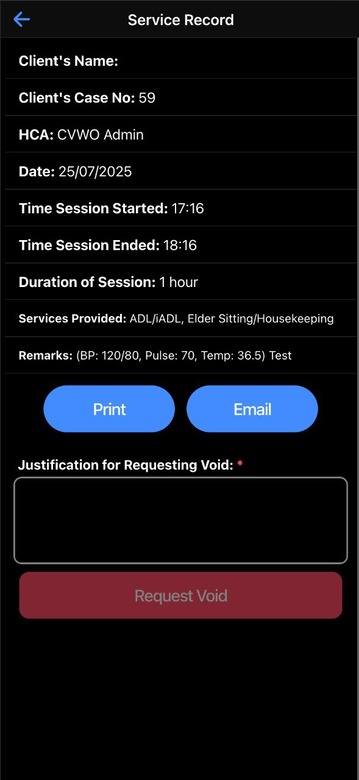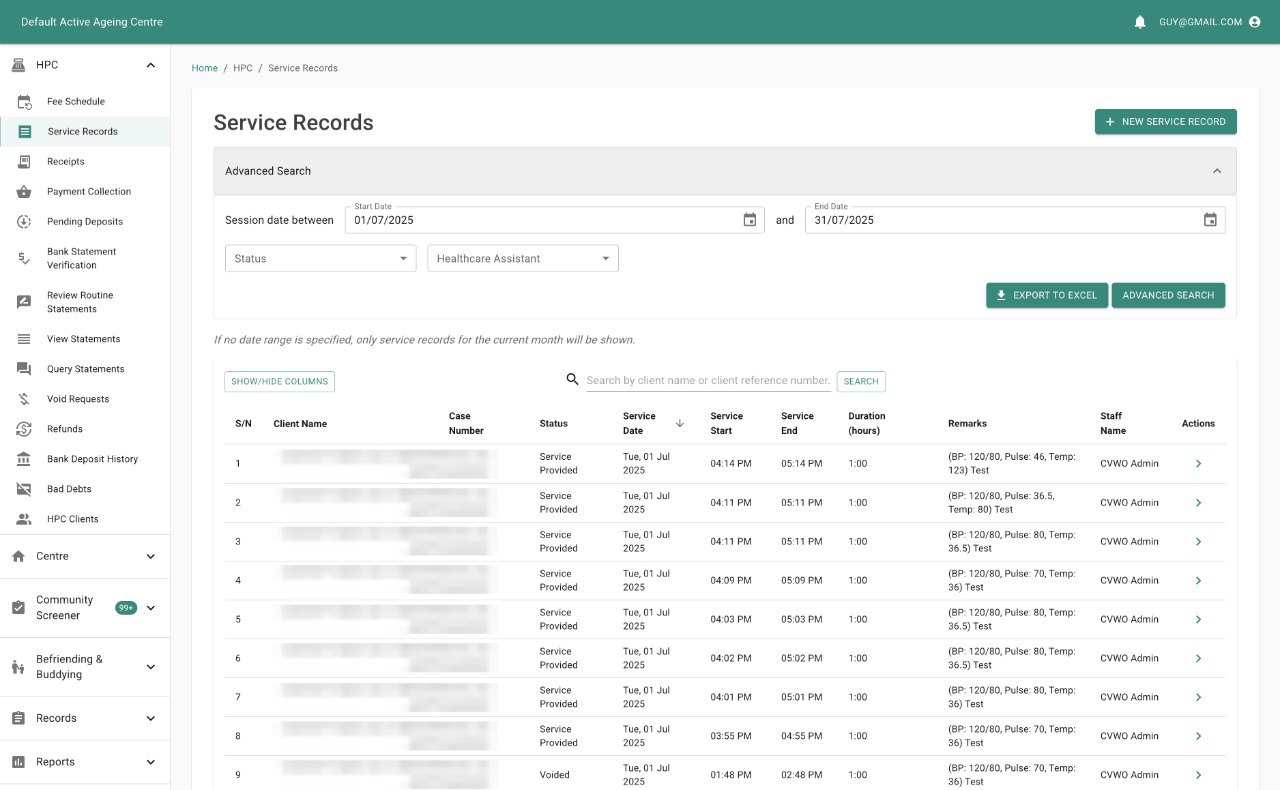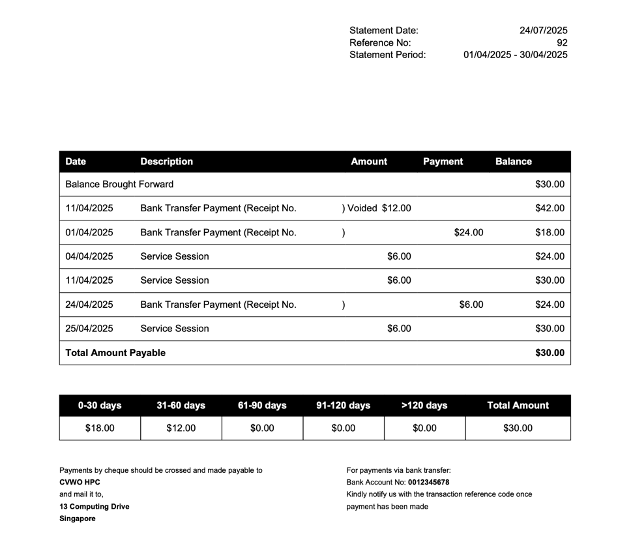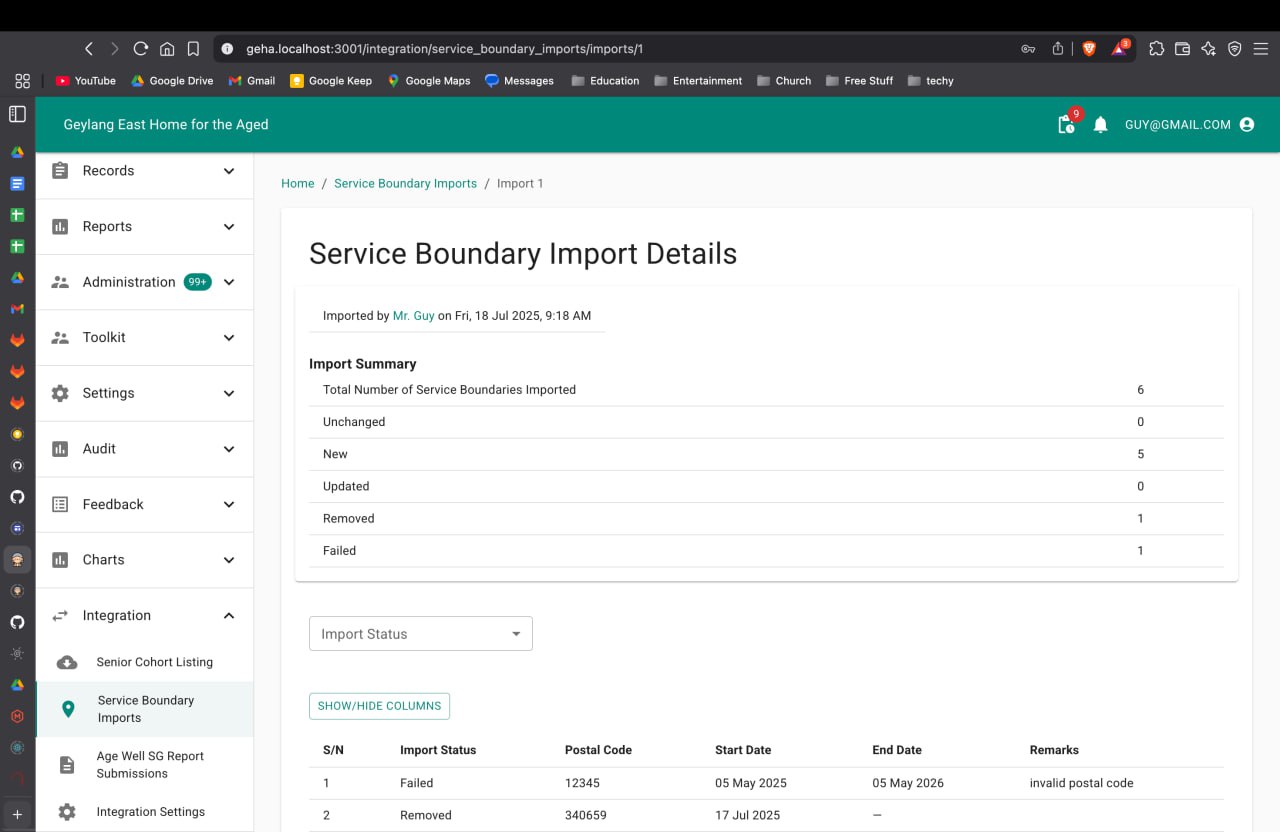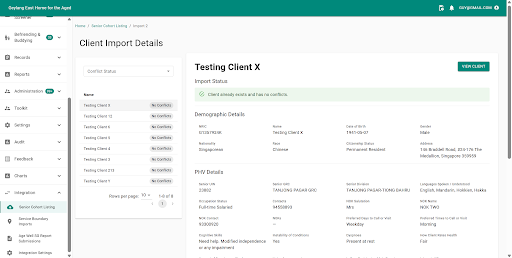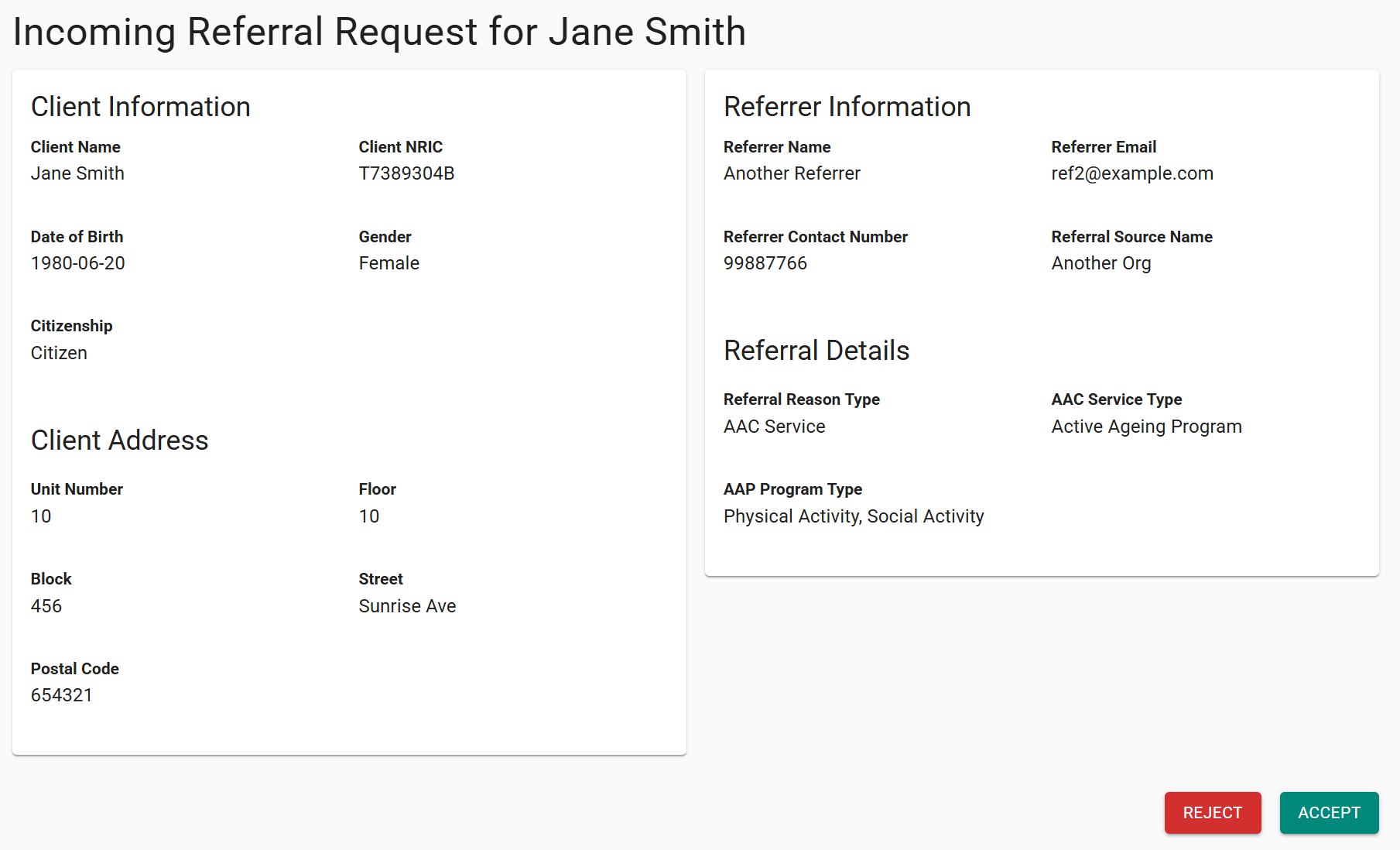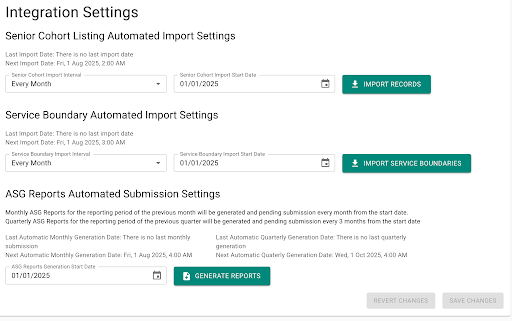Background
The Active Ageing Centre (AAC) system is an IT solution developed by CVWO to help our partner agencies, which focus on elderly care, carry out their daily operations more effectively. The system we built dates back to 2007, when CVWO created an IT system for Geylang East Home for the Aged (GEHA) to support their operations and streamline the process of generating reports.
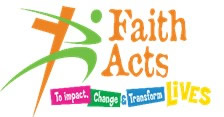
The AACs serve as a key point of contact for all social-health matters, provide opportunities for volunteering among seniors in their community, and offer the following four main services:

Key Contributions
Migration of HPC Module from Lions Rails App
As part of a long-standing goal to unify the tech stacks across all our projects, CVWO has worked on migrating the Rails app for Lions Befriender Service Association (LBSA) to our AAC system in the past 2 summers. This summer, we have officially concluded the migration by porting over the last remaining module, Home Personal Care (HPC).
The HPC module is one of the largest and most complex modules in the LBSA system, and consists of two main sections. Firstly, HPC involves service workers visiting the homes of the elderly and helping with basic household chores. As such, the HPC module requires a mobile web app for service workers to log these service sessions. On top of this, it also includes the functionality for printing or emailing the service session record to the clients. Additionally, the main desktop web app allows for centre staff to have a consolidated view of all the service sessions that were created.
The second major section of the HPC module is the accounting logic. As service sessions involve various kinds of payments, subsidies and waivers, a comprehensive accounting sub-module is required to track all the different transactions. Given that our team had little accounting background, we spent more time here studying past documentation and consulting online resources to ensure that we were able to accurately migrate the accounting logic. The end goal of the accounting module is to compile all the transactions for each client into an account statement every month. This can then be emailed to each client as a PDF, providing them with information on their outstanding balance and charges.
The HPC module also includes several smaller auxiliary sections, such as HPC Client Management, Bad Debts, Refunds, Bank Deposits, and Void functionalities. All of these have been ported to the AAC system, ensuring it now contains the complete HPC module. While HPC is not currently part of the workflow for most other AACs, it is a feature that some may adopt in the coming years. Thanks to the modularised design of our AAC system, we can simply keep the HPC module disabled for most tenants for now, and enable it for them when the need arises.
Improvements to Meet Latest AIC Requirements
As of October 2024, our AAC system was officially whitelisted by the Agency for Integrated Care (AIC) as an approved AAC IT system. To retain this qualification in 2025, we have upgraded the system to meet the latest audit requirements.
This year’s requirements focus on automating data exchange. Previously, information was transferred manually between AACs and AIC via email threads and Excel spreadsheets—a process that was both time-consuming and prone to errors. To streamline this, AIC has mandated a new set of integration requirements to be met by all AAC IT systems by October 2025. Under these requirements, systems must be able to directly retrieve service boundaries, senior cohorts, and incoming referrals from a centralised API gateway, while also automatically submitting KPI reporting data.
While most of the data reporting functionality was implemented last year and only required minor enhancements, the data retrieval component was entirely new and involved more development work. We have successfully implemented automatic data retrieval and created dedicated pages for AAC staff to review the fetched data. This imported data is now seamlessly integrated into the AAC workflow—for example, senior information retrieved from the system is automatically used to create or update client records in the Client Management module.
While developing these new features, another important consideration was to provide the AACs with some level of customisation. As such, we have allowed AACs to configure when and how often these automated processes take place so as to align with their existing workflows.
Project Team

- Wong Swee Chong, Dave (Project Lead, Year 2)
- Phoebe Yap Xin Hui (Developer, Year 1)
- Srisukhawasu Phanuphat (Developer, Year 1)
- Kosolpattanadurong Thitiwat (Developer, Year 1)
- Ngo Hoang Nhat Minh (Developer, Year 1)
- Javier Enrique Wong (Developer, Year 1)
- Hon Yi Hao (Developer, Year 1)
- Noah Seethor Leyang (Developer, Year 1)
- Shen Zihan (Developer, Year 1)
- Peh Hou Jin (Developer, Year 1)
- Pham Hai Minh (Developer, Year 1)
Afterthoughts
It has been a great experience to serve in CVWO again, working on interesting projects to benefit the community. I am thankful to have had such a great and talented team alongside me for the summer.
– Dave
CVWO has been a truly eye-opening experience, helping me connect technical skills with real-world business needs. Building products for real users with pressing needs gave me insights and growth that few other experiences can offer.
– Phoebe
Doing CVWO was truly a summer well spent. I learned something valuable, met someone inspiring, and did something meaningful for society.
– Oad
CVWO has been a wonderful experience that exposed me to a lot of practical and valuable insights in software engineering. Going through the CVWO codebase while sipping coffee was definitely a unique experience ☕️ :) Thank you to every person involved in this program for creating such a memorable experience throughout this summer break.
– Beam
CVWO has been an incredibly rewarding experience. I’m grateful to have the opportunity to learn real-world software engineering principles while making meaningful changes to our community.
– Lucas
CVWO was an eye-opening experience that taught me both technical skills and real-world business workflows — in just three months, we delivered impactful projects that help real people
– Javier
During CVWO, we learned that a career in Computer Science isn’t just about financial gain. More importantly, it’s about building systems that can have a meaningful and positive impact on society.
– Yi Hao
CVWO has been an intense but rewarding journey. From tackling real-world challenges to building systems that truly matter, this experience pushed me to grow as a software engineer. I’m grateful to have been a part of something so meaningful.
– Noah
CVWO gave me the opportunity to contribute to society by improving a website used by real users. As someone with little prior experience, it deepened my understanding of web applications and made me appreciate the non-technical nuance of real-world software engineering.
– Zihan
CVWO was an invaluable opportunity for me to experience first-hand what being in an SWE team was like. I also picked up numerous transferrable skills along the way, be it managing clients or designing user-centric features.
– Hou Jin
CVWO was a challenging but valuable opportunity, I’m incredibly grateful for all the lessons I have learned from Prof. Ben, my team lead and all members in my team. It equipped me with not only technical skills but also soft skills that can’t be taught elsewhere.
– Minh
We would like to express our heartfelt gratitude to the following individuals and organisations for their invaluable support and influence throughout our project:
- GIC for their generous support
- Prof. Ben Leong (NUS) for his guidance and mentorship
- GIC GPP Mentors Wincent, Daryl, Zechary and Ian for their guidance
